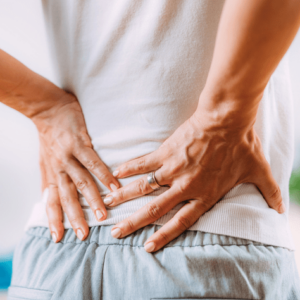If you’re experiencing jaw pain or mysterious headaches, you may be among the 35 million Americans with a temporomandibular joint disorder, or TMJ.
TMJ disorders affect the hinge that connects the jawbone and the skull. And while these conditions typically aren’t life threatening, they can certainly negatively impact someone’s quality of life.
FOLLOW US ON FACEBOOK & INSTAGRAM
Treatment for TMJ disorders can include a variety of prescription medications and even surgery, but these approaches can have serious side effects. Now, though, TMJ sufferers are turning to cannabis as a safer way to relieve the pain and other discomforts of mild to severe TMJ disorders.
What Is TMJ?
TMJ is an umbrella term for a collection of conditions that cause pain and dysfunctions in the jaw joint and the muscles that control the movement of the jaw for speaking and chewing. TMJ disorders typically include:
- Internal damage or dysfunction of the jaw joint itself, from causes such as a displaced disk or jaw injury
- Myofascial pain, which causes pain or discomfort in the muscles that control jaw movement
- Arthritis, which can cause degeneration and inflammation of the disks and cartilage in the temporomandibular joint that connects the jaw to the skull
Aside from injury to the jaw or a systemic disorder such as arthritis, doctors aren’t entirely sure what causes TMJ. But genetics can play a role and so can stress. In particular, stress can cause someone to clench their jaw muscles or grind their teeth—a condition called bruxism that can even happen when someone’s asleep.
The most obvious symptoms of TMJ include pain in the jaw itself and soreness in the muscles that control jaw movement. But these disorders can also have other, less obvious symptoms, like:
- Aching or pain in and around the ear
- Pain or aching in the face
- Popping or clicking noises when the jaw moves
- Difficulty chewing
- Locking of the jaw joint, making it hard to open or close the mouth
- Misalignment of the upper and lower teeth
TMJ is also associated with anxiety and depression. And people also often complain of insomnia due to pain and muscle tension.
Along with these symptoms, TMJ can also make it difficult to eat, drink or speak.
How to Folks Typically Ease TMJ Pain?
Because TMJ can have multiple causes and these disorders affect people differently, treatments for TMJ vary widely. Folks with mild TMJ can take over-the-counter pain medications and employ self-care strategies such as massage or heating pads. Some people benefit from counseling, lifestyle changes or physical therapy.
But for more severe TMJ, doctors may prescribe medications from several different classes of drugs, such as:
- Prescription-strength pain medications
- Anti-inflammatory medicines to relieve joint swelling and heat
- Tricyclic antidepressants, which can relieve bruxism and insomnia
- Muscle relaxants for pain caused by jaw clenching and muscle spasms
When self-care and medications don’t provide relief, corticosteroid injections or surgery may be an option. These methods of relieving TMJ symptoms can also have considerable side effects and risks, but some research suggests that cannabis can ease pain and relax muscles without the risks associated with pharmaceuticals or invasive procedures.
How Can Cannabis Help TMJ Pain?
Cannabis contains over 400 compounds that contribute to the unique profiles of individual cannabis strains—and these substances work together to help ease symptoms of a number of health conditions.
Cannabis compounds such as tetrahydrocannabinol (THC) and cannabidiol (CBD) do this by activating or influencing receptors in the body’s endocannabinoid system (ECS).
The ECS is a network of cell receptors that respond to natural cannabinoids produced by the body and to the nearly identical ones in the cannabis plant. Marijuana can activate ECS receptors in the brain and muscle tissues to relieve the aches and pains of TMJ disorders—and reduce the anxiety and depression that many TMJ sufferers experience.
TMJ disorders of all kinds cause pain, not only in the jaw but also in the:
- Ears
- Face
- Neck
Now, a considerable body of research reveals that marijuana can relieve pain from a variety of chronic conditions, such as arthritis. In many cases, it can be as effective in relieving pain as opioid painkillers can. And as you probably know, opioids are a powerfully addictive class of prescription medications.
RELATED: THE SCIENCE BEHIND WHY MARIJAUANA IS SAFER THAN OPIOIDS
TMJ muscle tightness and spasms can cause pain and create problems with chewing, drinking, and moving the mouth and jaw. But cannabis can promote muscle relaxation, even in chronic neurological conditions such as Parkinson’s disease. Some research indicates that it can also relax TMJ muscle spasms in the face and jaw and reduce the jaw clenching that causes tightness and pain.
Because cannabis can promote relaxation and reduce anxiety, it can also help to relieve whole body symptoms of TMJ such as:
- Anxiety
- Depression
- Insomnia
It’s important to keep in mind, though, that some strains of marijuana, or simply consuming too much of strains that are high in THC, can also produce the opposite effect, namely:
- Anxiety
- Agitation
- Racing heartbeat
How to Take Marijuana for TMJ
Cannabis comes in many forms, and just about all of them may relieve symptoms of TMJ. Smoking and vaping cannabis can get cannabis compounds into the bloodstream quickly through capillaries in the lungs. But for some people with TMJ, mouth movements needed for smoking or vaping can worsen an existing TMJ condition.
Tinctures are liquid extracts of cannabinoids and terpenes that are typically placed under the tongue. The mucus membranes of the mouth absorb cannabis quickly, so this method of consuming marijuana can provide relatively fast relief for pain, anxiety and other symptoms. Variants that work in similar ways include lozenges and films that folks can place on their tongue or on the inside of their cheek.
Cannabis edibles such as gummies or chocolates deliver cannabis compounds more slowly than other methods, since the digestive system must process the cannabis before reaching the bloodstream. But edibles can also help to relieve jaw pain, relax muscles and calm anxiety, particularly if they’re high in calming CBD.
People can also apply cannabis topically, directly onto the muscles and joints of the jaw. Creams, oils and ointments can ease the pain of joint aches and muscle strains and sprains because they’re absorbed through the skin, bypassing the digestive route completely. Most of these preparations are high in CBD but contain little or no THC.
A TMJ disorder can be a temporary inconvenience, or a chronic condition that affects many aspects of a person’s life. But cannabis can offer fast and safe relief without the side effects of many of today’s standard treatments for TMJ.
Photo credit: LightField Studios/Shutterstock.com
If you’re new to cannabis and want to learn more, take a look at our Cannabis 101 index of articles. And if you have questions about cannabis, ask them and our community will answer.






